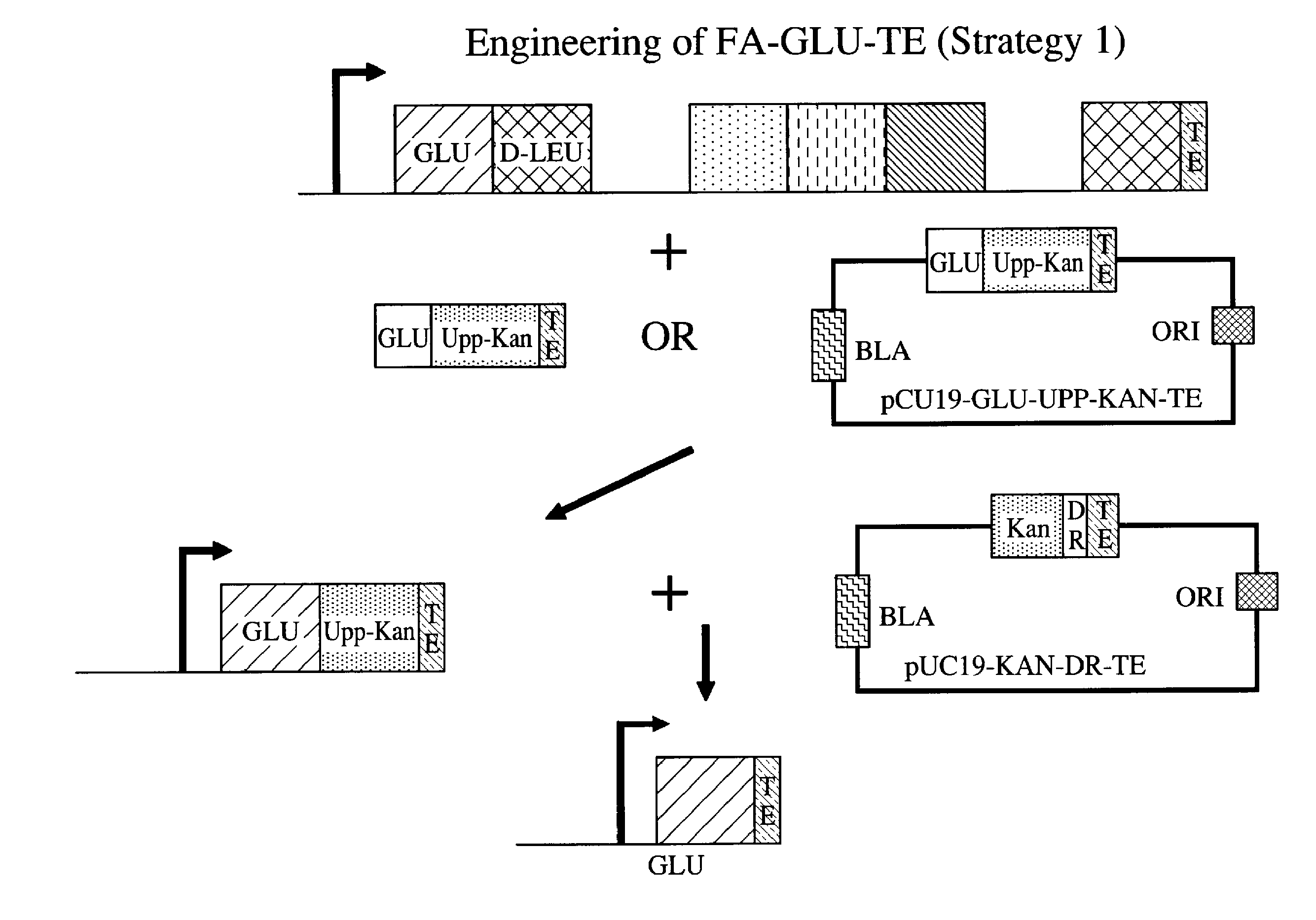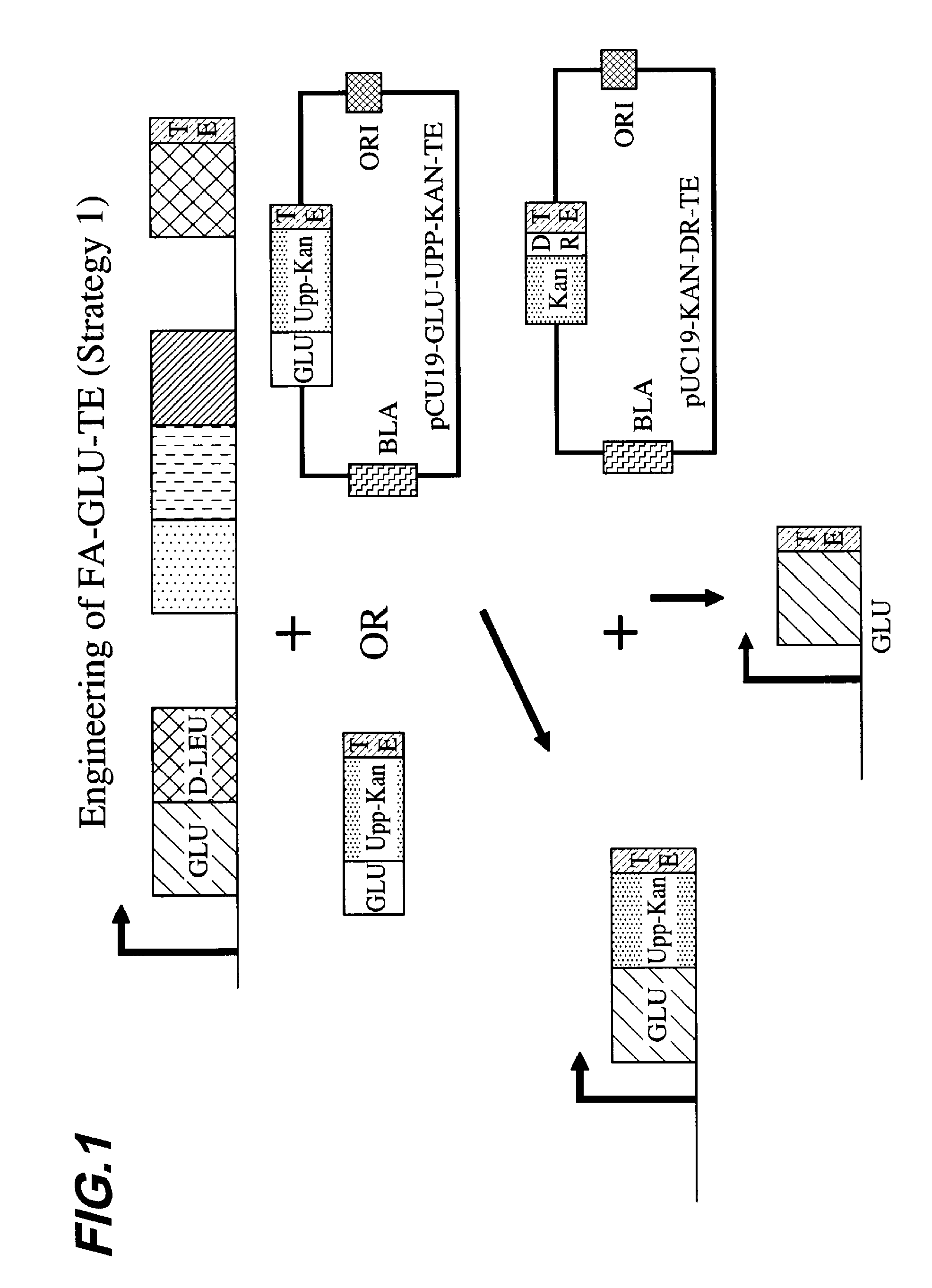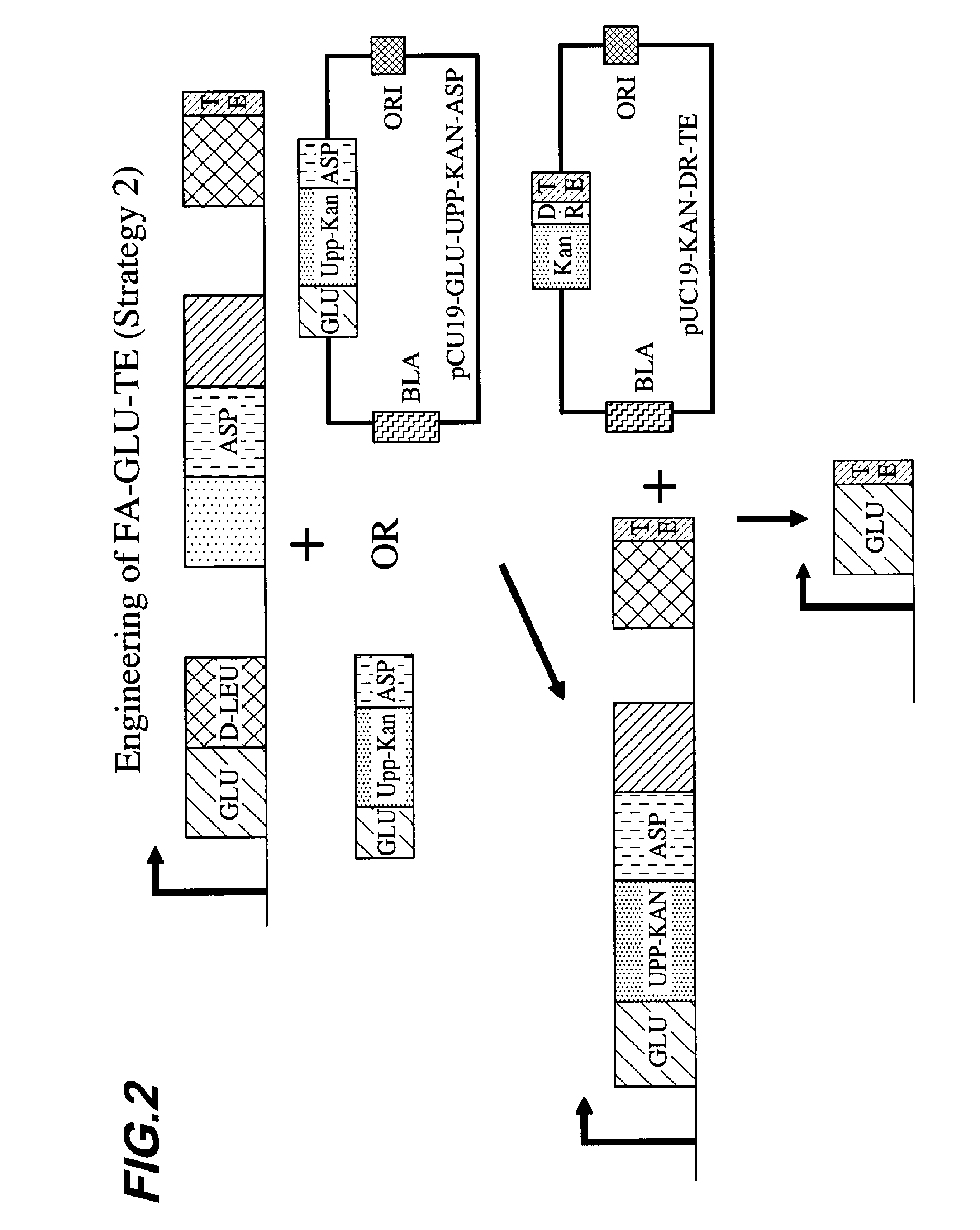Generation of acyl amino acids
a technology amino acids, applied in the field of acyl amino acids, can solve the problems of reducing affecting the economic benefits of chemical by-product disposal, and affecting the efficiency of chemical synthesis
- Summary
- Abstract
- Description
- Claims
- Application Information
AI Technical Summary
Benefits of technology
Problems solved by technology
Method used
Image
Examples
example 1
Engineering of a FA-GLU-TE Construct Using a Fusion Points Between GLU and TE Upstream of the Consensus Sequence GGHSL
[0086]GGHSL is a common sequence present in thiolation domains. The strain that was used for the synthesis of FA-Glu is 14311_D3 (OKB105 Δ(upp)SpectR(Δ mod 2)). This strain contains the SRFA, SRFB and SRFC genes necessary to synthesize wild type surfactin, with the exception that the second module of the SRFA gene necessary to catalyze addition the second amino acid (leucine) has been deleted in this strain.
[0087]In this example, we started with the plasmid pUC19-UPP-KAN (an engineered pUC 19 plasmid that contains the B. subtilis upp gene and the kanamycin resistance gene from Enterococcus faecalis) and cloned upstream of upp a ˜1 kb DNA fragment that encodes the C-terminus of the SFRA module, which catalyzes the synthesis of the first Glu amino acid of surfactin. Due to the high similarity that exists among surfactin modules, it was advantageous to do nested PCR rea...
example 2
A Second Strategy for Engineering a FA-GLU-TE Construct Using a Fusion Points Between GLU and TE Upstream of the Consensus Sequence GGHSL
[0101]In this example, we followed a similar strategy to that employed in Example 1 but instead of directly deleting surfactin modules 3-7 in one step, we created an intermediate Bacillus strain (OKB105 Δ(upp)SpectR(Δ mod(2-4)) in which we deleted modules 2, 3, and 4 in the surfactin synthetases, and then transformed that strain using pUC19-KAN-DR-TE, as described in Example 1 above, to obtain OKB105 Δ(upp)SpectR FA-GLU-TE.
[0102]The strain used for the engineering of (OKB105 Δ(upp)SpectR(Δ mod(2-4)) was strain 013627 (OKB105 Δ(upp)SpectR(Δ mod 2)). The starting plasmid to mark the chromosome of 013627 was pUC19-GLU-UPP-KAN. Due to the high similarity that exists among modules, it was necessary to do nested PCR reactions to amplify genomic DNA sequences. The C-terminus of the module that encodes Asp was obtained from the genomic DNA of strain OKB105...
example 3
Engineering a FA-GLU-TE-MH Construct using Fusion Points Between GLU and TE Downstream of the Consensus Sequence GGHSL
[0107]In addition to the construct described above, where we engineered a fusion between the modules encoding glutamic acid and surfactin's thioesterase domain upstream of the consensus sequence GGHSL, we engineered two additional constructs in which the fusion point was engineered downstream of the consensus sequence GGHSL.
[0108]One of these constructs, which we labeled FA-GLU-TE-MH, was engineered by transforming a plasmid, with a modified fusion boundary between GLU and TE, into strain OKB105 Δ(upp)SpectR(Δ mod(2-7)) upp+ KanR. The first step of this strategy was to modify the plasmid pUC19-GLU-UPP-KAN-TE and add the DNA missing to make the fusion between GLU and TE downstream of the consensus sequence GGHSL. Accordingly, the eight primers below, which are partially contiguous, were used as in a PCR as primers and template:
019114:[SEQ ID NO: 37]5′-GGGGATCTTTGACAAT...
PUM
 Login to View More
Login to View More Abstract
Description
Claims
Application Information
 Login to View More
Login to View More - R&D
- Intellectual Property
- Life Sciences
- Materials
- Tech Scout
- Unparalleled Data Quality
- Higher Quality Content
- 60% Fewer Hallucinations
Browse by: Latest US Patents, China's latest patents, Technical Efficacy Thesaurus, Application Domain, Technology Topic, Popular Technical Reports.
© 2025 PatSnap. All rights reserved.Legal|Privacy policy|Modern Slavery Act Transparency Statement|Sitemap|About US| Contact US: help@patsnap.com



